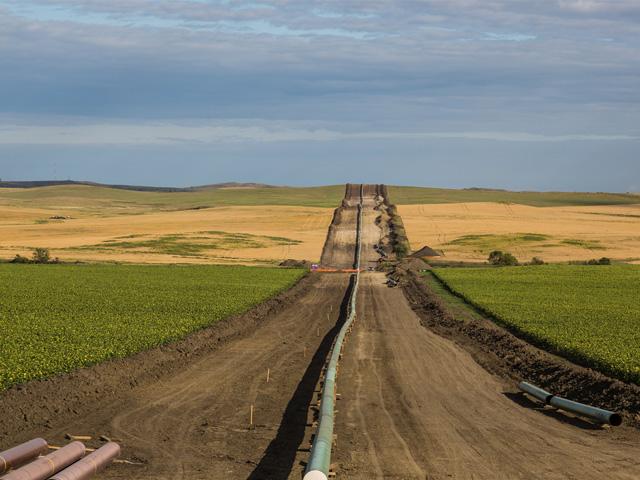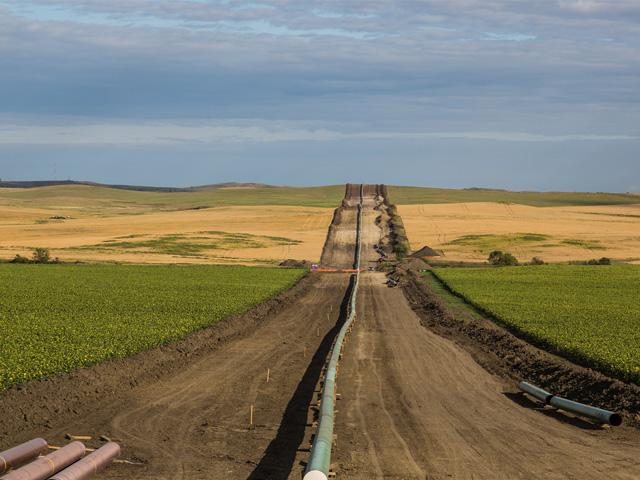Ag Policy Blog
Carbon Pipelines Projects Face Permit Hearings, Litigation and Legislation
2023 will shape up as a major year in the permitting and development of carbon pipelines across the Midwest and Plains states.
The Minnesota and South Dakota Public Utilities Commissions each this week will examine the permits of major carbon pipeline projects.
The Minnesota PUC is expected on Thursday, Jan. 5 to hear a permit application by Summit Carbon Solutions to cross two counties in southwest Minnesota.
South Dakota's PUC also has hearings set on Jan. 5 for both Summit and the Navigator Heartland Greenway project.
The actions come as Summit Carbon last week released comments from South Dakota ethanol producers who stated that South Dakota's PUC is slow walking the permit process in that state. Summit released a statement listing CEOs and board members for five ethanol plants in South Dakota calling for the state's PUC to hold Summit's permit hearing in April.
P[L1] D[0x0] M[300x250] OOP[F] ADUNIT[] T[]
"We strongly encourage the South Dakota Public Utilities Commission to resist unwarranted efforts to delay the regulatory process in the state," said Ron Alverson, a South Dakota farmer and board member for Dakota Ethanol in Wentworth, S.D. "With 2,300 landowners across the Midwest signing 3,800 easement agreements accounting for 56% of the proposed route, it's clear that farmers are embracing the Summit Carbon Solutions project because they believe it's critical for their bottom line. Those landowners deserve to have a formal hearing in April, which would meet South Dakota's required statutory permit decision deadline of June 15."
Summit's pipeline would move carbon dioxide from ethanol plants and possibly other industries from Iowa, Minnesota, Nebraska, South Dakota and sink the carbon in the ground in North Dakota.
Navigator would go from South Dakota into Nebraska and Iowa and sink carbon dioxide in the ground in Illinois.
Each company has contracted with roughly 30 ethanol plants, and other industries such as fertilizer. Summit and Navigator are each looking to sink between 12 million and 15 million metric tons of carbon dioxide annually. The ethanol industry sees the pipelines as a major opportunity to lower the carbon intensity of corn-based ethanol and achieve better scoring for carbon credits in states with low-carbon fuel standards.
Tax credits for carbon sequestration, known as 45Q, were increased from $50 per metric ton to $85 per mt. The bill also provided the Department of Energy with up to $40 billion in loans for carbon sequestration and transportation projects.
AgWeek reported that the South Dakota PUC on Dec. 20 had directed staff to look at moving the hearing dates back to at least next September, even though staff had suggested holding Summit's hearing in April or May. The South Dakota PUC wants at least ten days of hearings.
Litigation and local regulation are crossing paths with the projects as well. Summit has filed federal lawsuits against at least four South Dakota counties, the Aberdeen, S.D., News reported last month. The lawsuits come after Brown, Edmunds, McPherson and Spink counties in S.D., had each passed permit moratoriums blocking Summit's pathway. Alverson also has joined each of those lawsuits as a plaintiff with Summit.
Summit, however, also is facing dozens of lawsuits from South Dakota landowners, AgWeek reported.
In Iowa, more counties also are introducing ordinances to regulate carbon sequestration pipelines. The Cedar Rapids, (Iowa) Gazette reported Monday about ordinance proposals in at least two Iowa counties. The Iowa Utility Board could take up Summit's permit application in that state as early as March, though opponents have asked for delays there was well.
Radio Iowa also reported last week that the Iowa Legislature will look at new rules for pipelines this year as well. House Speaker Pat Grassley told Radio Iowa that the issue has become bigger for lawmakers in rural districts. Grassley said an outright ban is unlikely.
Also see, "Biofuels, Carbon Capture and Storage,"
Chris Clayton can be reached at Chris.Clayton@dtn.com
Follow him on Twitter @ChrisClaytonDTN
(c) Copyright 2023 DTN, LLC. All rights reserved.






Comments
To comment, please Log In or Join our Community .